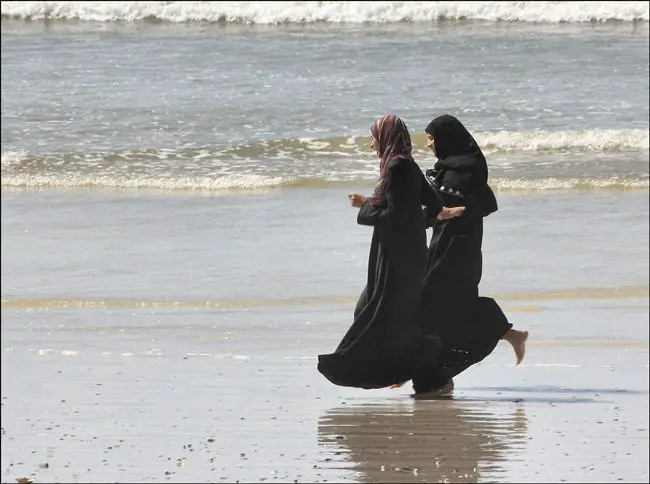
By Emily Norton
Donald Trump’s failure to condemn white supremacists after the violent neo-Nazi rally in Charlottesville several weeks back had an unexpected casualty: the president’s business advisory councils.
My partner works for a Fortune 500 company whose CEO sat on one those councils. Along with many other employees, my partner had been pressuring the CEO through an internal petition for some time.
Eventually, the dam broke: CEO after CEO decided they could no longer associate themselves with the White House after the incident, forcing Trump to dissolve two high-level panels.
I’m glad my partner’s efforts, along with bigger ones like a campaign to target “Corporate Backers of Hate,” rattled these major corporations’ top decision makers.
Corporate execs know that it’s bad for business to be affiliated with racists — and good for business to look like heroes. But while rejecting racism is good, it’s a low bar — especially when many still profit off it.
For example, Jamie Dimon, CEO of JP Morgan Chase, jumped into action after Charlottesville. He not only issued a statement, but also announced that JP Morgan Chase would donate $500,000 to the Southern Poverty Law Center, an organization that’s fought racism since the 1970s.
It was a smart business move. The last time JP Morgan was on the wrong side of racism, it cost them $55 million in settlements for charging black and brown people higher rates for their mortgages. Looking at that number, a $500,000 donation is a drop in the bucket.
The company can’t take back the discrimination lawsuits or its part in the housing crisis, which slashed black wealth in this country in half. That’s a huge percentage. Black families had already been denied centuries of wealth accumulation due to slavery and racist policies like redlining, and this crisis was a double whammy.
$500,000 also isn’t enough to make up for the bank’s financing of mass incarceration.
JP Morgan Chase lent hundreds of millions of dollars to Geo Group and CoreCivic, two major operators of private prisons and immigrant detention centers, despite investor concerns .
All that dirty money makes Dimon’s comments in support of DACA after Trump’s decision to repeal it also ring a little hollow.
DACA, or Deferred Action for Childhood Arrivals, is a program created by the Obama administration that protects some young undocumented immigrants from deportation.
It’s hard to believe that Dimon truly thinks that “when people come here to learn, work hard, and give back to their communities, we should allow them to stay in the United States” when his company supports corporations that profit from warehousing immigrants in detention.
White supremacy doesn’t just look like KKK hoods and swastikas — it can also wear a business suit on Wall Street. Of the top five Wall Street firms, the highest level decision makers are 86 percent white. That’s no coincidence.
Corporations have huge power they can use to fight structural racism. But it’s got to be more than just words.
JP Morgan and Goldman Sachs could publicly commit to pull contracts that contribute to mass incarceration. IBM could refuse contracts that contribute to violent immigration enforcement activities. Wells Fargo could halt its financing of the Dakota Access Pipeline on Native lands. At a minimum, that’s what the Corporate Backers of Hate campaign recommends.
And, by looking inward at their hiring policies, promotion policies, and pay scales, these businesses can begin building towards long term equality.
Don’t get me wrong, it is a good thing that they denounced hatred. I just hope they’ll put their money where their mouth is.
![]()
Emily Norton is the leadership development manager at the Institute for Policy Studies.





























Realist says
If blacks are 13-14 percent of the population, why is it unreasonable that the top people are 86 percent white?
Stretch says
Because whites don’t make up 86 percent of the population.
Jameson Risley says
Although I disagree with parts of this article, your comment is unjustified by the math because it assumes that the populaton only consists of black and white ethnic groups.
Jameson Risley says
I disagree with your statement that President Trump failed to denounce the neo-nazi protestors in Charlottesville. He denounced the violence “on both sides”, which the media immediately attacked as unacceptable. Anyone who refuses to acknowledge that many of the counter-protestors came not only prepared but eager for violence needs to pull their head out of the sand. Both sides showed up prepared to do battle, carrying shields and clubs and wearing helmets. As much as I despise racism and discrimination, I believe that First Amendment rights allow hateful people their point of view also, whether I want to hear it or not. I believe the best way to deal with hateful people is to ignore them as long as they violate no laws. Don’t give them the media attention they crave.
George says
@Jameson Risley, I agree with you wholeheartedly that the media is a huge problem here, I also agree with you about how hateful people have rights too. However, there has to be a line drawn somewhere…and personally, I draw that line when it comes to people who support putting Jews in ovens and gas chambers.